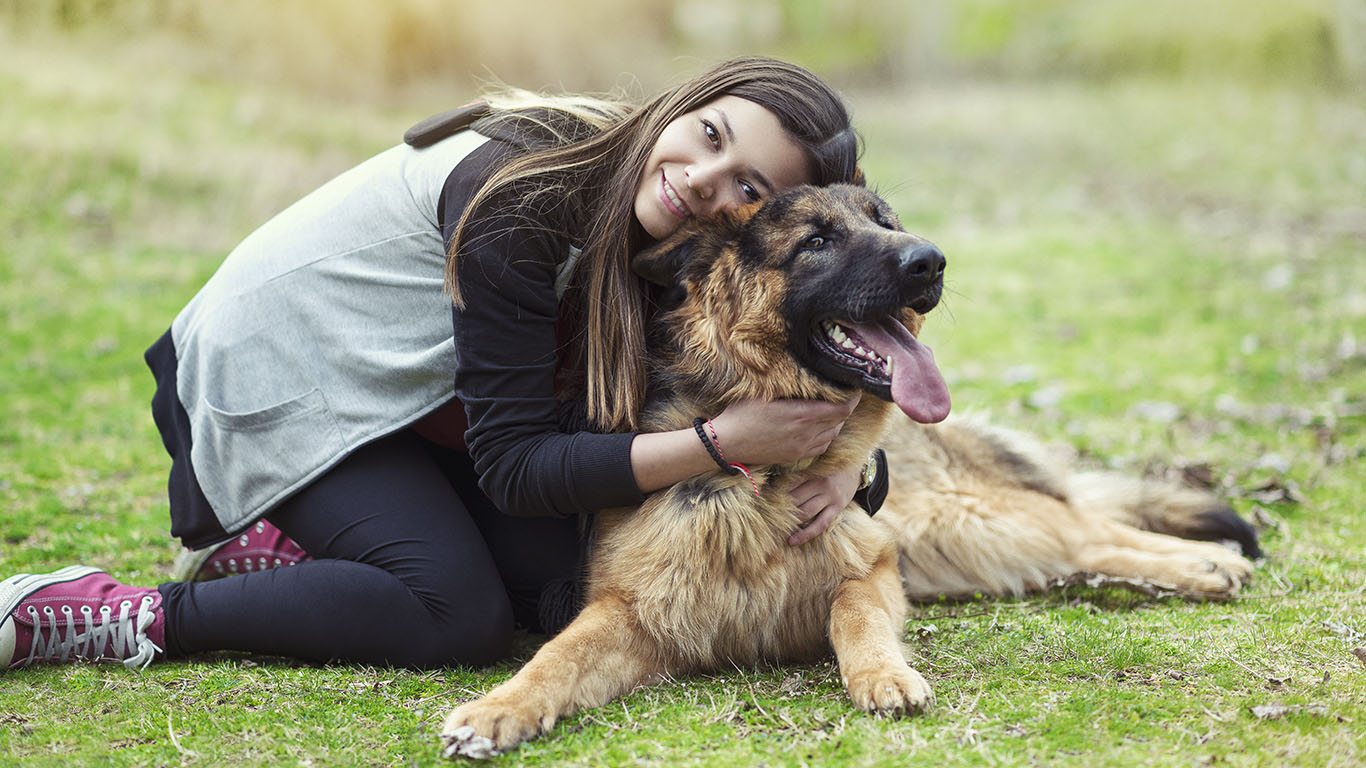
There are about 90 million dogs in U.S. households, with a multi-billion dollar industry to support them. Still, nearly a quarter of shelter dogs are euthanized each year. These numbers have been declining, however, due to the increasing popularity of adopting shelter animals. Adopting from a shelter can not only help these numbers to decline further, but have many other benefits for both the dogs and owners.
Some people may hesitate to bring home a canine from a shelter, somehow suspecting that it will be inferior to one bought from a reputable pet shop or breeder — or that their choices will be limited to mixed breed “mutts.” Nothing could be further from the truth.
First of all, mutts have a lot of advantages over purebreds. Just for starters, while some other breeds might have their own dedicated dog holiday, mutts have two: Both July 31 and December 2 are designated as National Mutt Day.
Beyond that, though, these are some advantages of mixed breed dogs: They’re unique, first of all (your pooch won’t look like anybody else’s). In addition, they tend to have fewer health issues than purebreds, as some breeds are genetically susceptible to various ailments that may not affect animals who carry only some of a breed’s DNA. They can also have more even temperaments than some high-strung thoroughbreds, so can be better around kids. (These are the best family-friendly dogs.)
And did we mention that mutts are cheaper — both to buy and to care for (no special poodle trims or shih tzu top knots required when they go in for grooming).
Click here to see 25 reasons why rescue dogs are the best pets.
If you insist on a purebred dog, however, shelters are full of them, too. According to the dog and cat data site PetBreeds, the dogs most commonly available for adoption from shelters are (in descending order) the American pit bull terrier, the chihuahua, the Labrador retriever, the German shepherd, and the American Staffordshire terrier. Your chances of finding boxers, beagles, and dachshunds are pretty good, too. What more could you want?
Some dogs are put up for adoption when they’re puppies, if a frisky young thing is what you want — but even older dogs have lots of advantages (see below). And if you do get a pooch with some years on it, these are the dogs that stay puppies the longest.

1. Adopt a dog of any age
Puppies may be adorable, but there are benefits to adopting an older dog. When looking for a rescue dog, potential adoptees have the choice of more than just younger pets. Senior or older dogs, usually considered 7 years or older, are some of the most difficult to place. The advantage of welcoming an older dog into your home is that it’s more likely to have been trained, it may understand basic commands, and it might be calmer.
[in-text-ad]

2. Find a better match
Some dog owners may recognize the right pet for them as soon as they’ve laid eyes on it, but it’s important to make sure owners and dogs are properly matched. The right pairing is more likely when adopting a pet rather than buying one as shelters consider needs such as temperament, home environment, and more. Unlike pet stores, profit is not a factor at shelters , and the best interests of the owners and animals are put first.
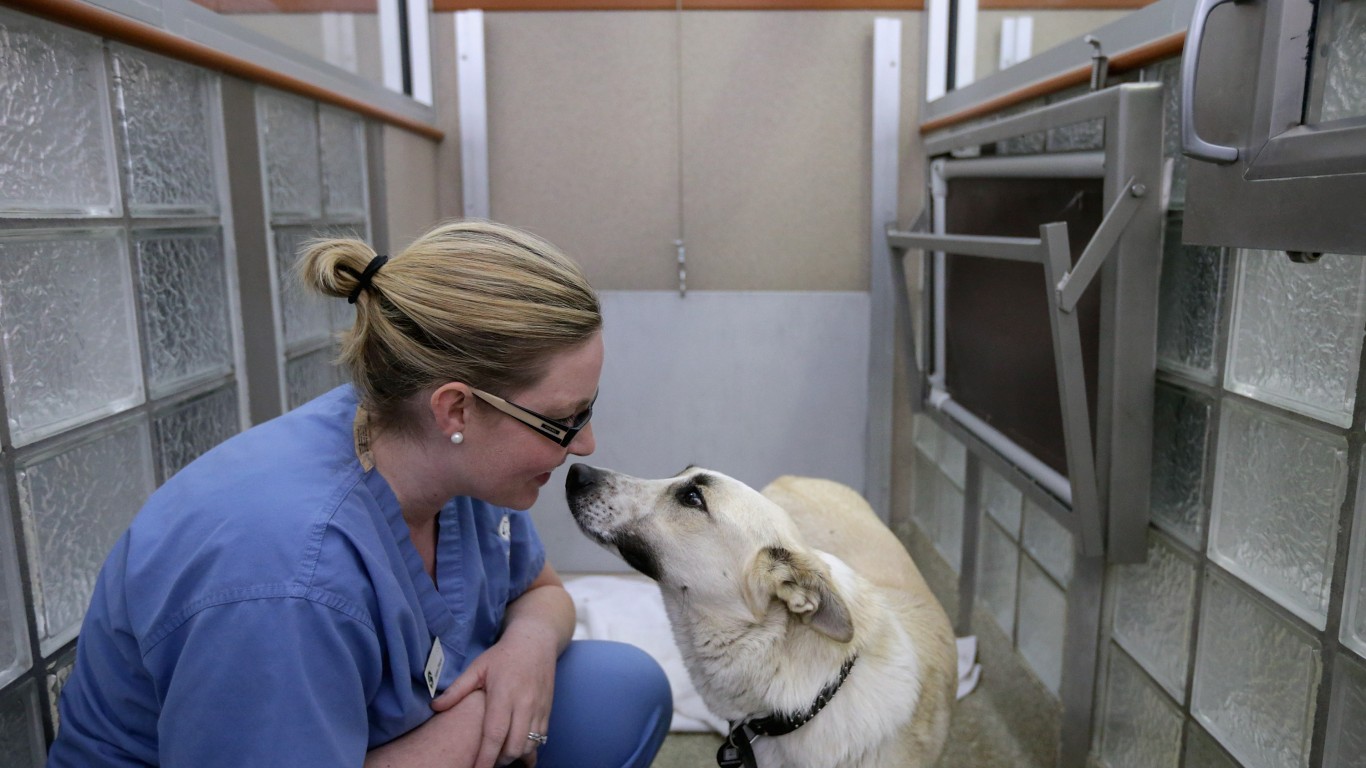
3. Use the resources of the shelter
Dogs unfortunately don’t come with instruction manuals. But the next best thing is the shelter from which you adopted your dog. The employees and volunteers can be a great ongoing source of information and resources for your pet. The shelter can also offer or recommend services such as veterinary care and behavior training.

4. Get a dog that has already been trained
Puppies can take around four to six months to be fully house trained, with some requiring up to a year. Most rescue dogs, however, don’t need as much training or may already be housebroken, and can often respond to basic commands. Some shelters may even put resources into training the dog before adoption. This doesn’t mean that a rescue dog won’t need additional training, but the process can be easier than with a puppy.
[in-text-ad-2]

5. Receive additional health benefits
Studies have shown that owning any pet has a myriad of health benefits. These can include decreased blood pressure and cholesterol and triglyceride levels. A pet can also reduce feelings of loneliness, increase opportunities for exercise and time outside, and facilitate socializing. Adopting a rescue animal not only has these advantages, but knowing that you have helped to save an animal can also help your psychological well being.

6. Choose from a better selection
Though some dog breeds are more common at shelters than others, when adopting a dog, adoptees will have a greater selection than at a pet store. They can choose from not only different breeds and mixes, but also ages, sex, and personality. This selection will allow for better matching between the owner and pet.
[in-text-ad]
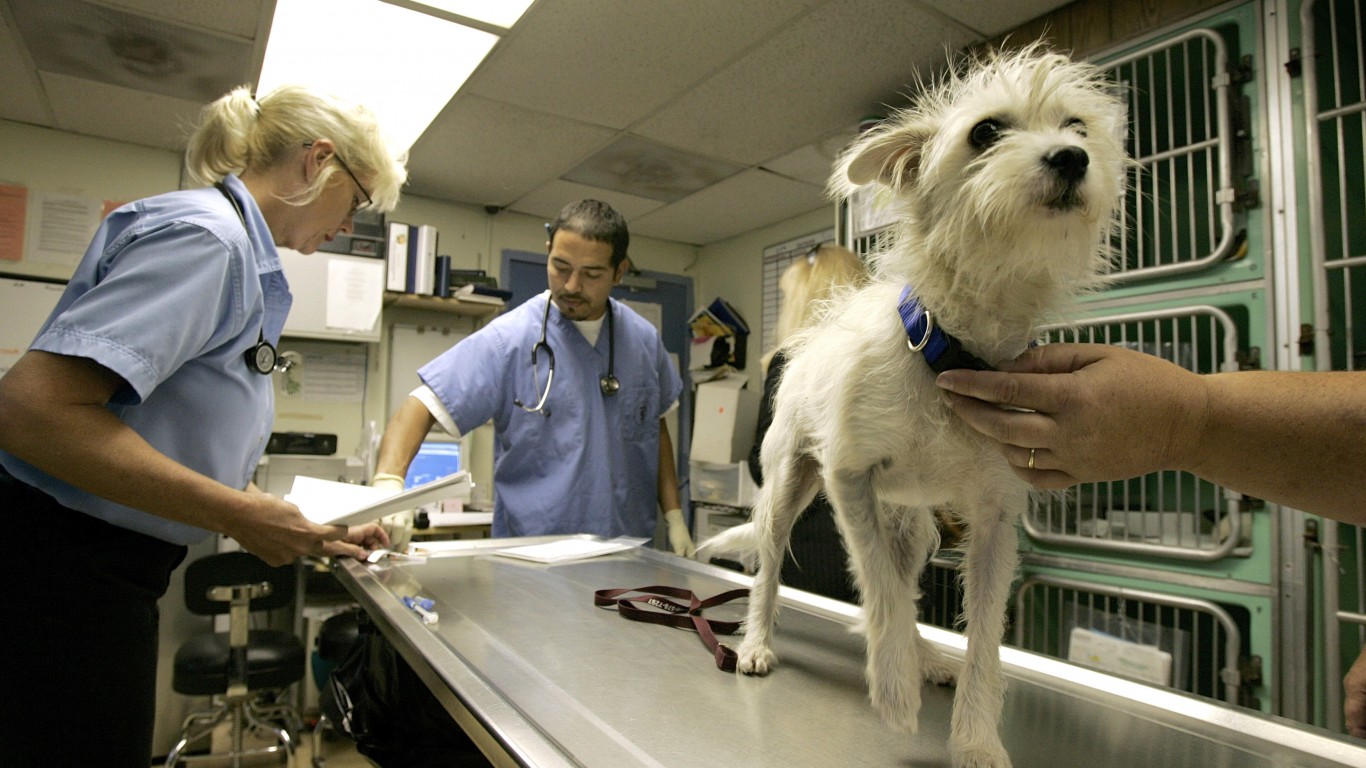
7. Spaying or neutering is done for you
Getting your pet spayed or neutered is costly but it has several advantages.
It can improve the animal’s health and behavior, and will help control the pet population. Most states require that adopted pets be spayed or neutered, and the shelter will often provide this service for free.
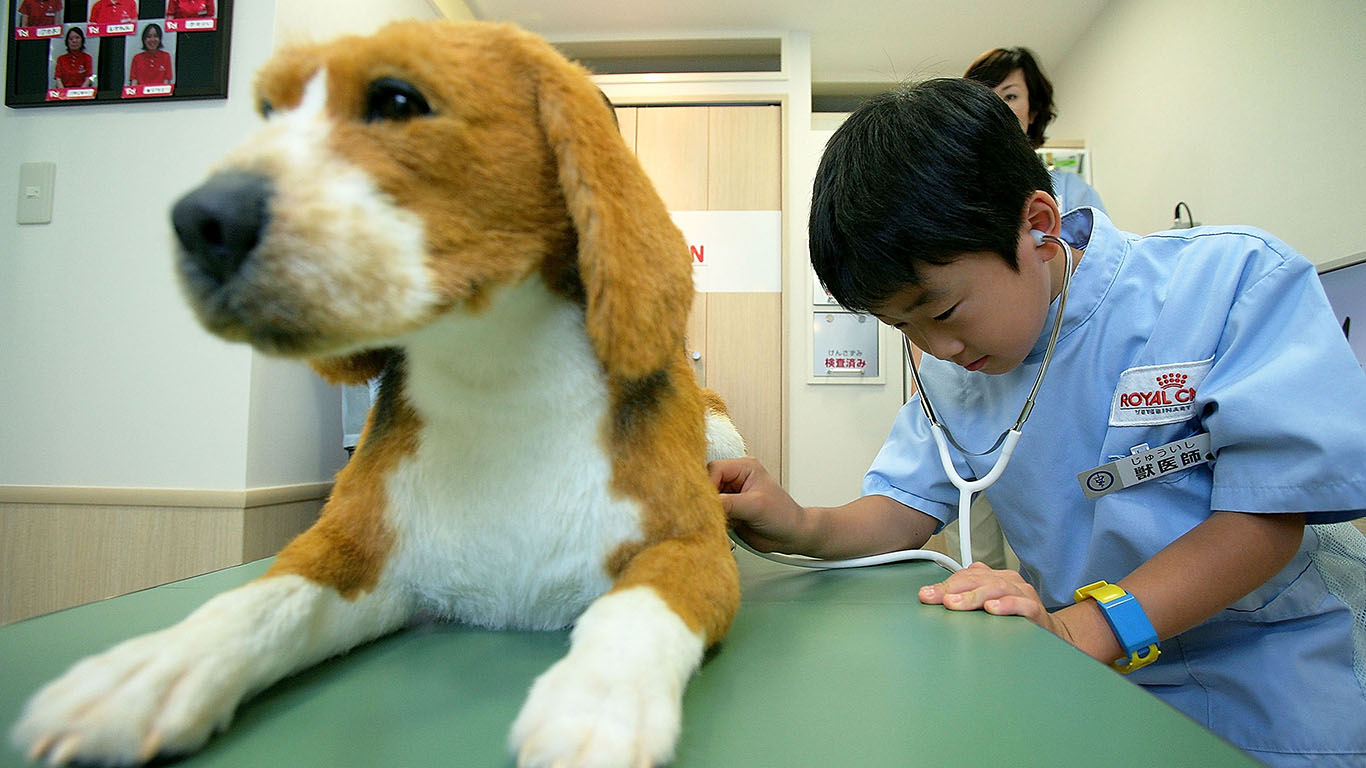
8. Reduced costs
Adopting a dog usually involves a fee, but this fee is typically lower than the cost of buying a dog from a pet store or a breeder. Shelters also cover other costs that may be extra elsewhere. These covered costs can include spaying or neutering, vaccinations, microchipping, and even training expenses.

9. Get an older dog if you’re a first-time owner
There is a reason that more people have started adopting older dogs, usually considered 7 years or older . These mature dogs have advantages, such as being house-trained, calmer, and easier for people with hectic lives. They can also be more predictable than puppies. For these reasons, they are often a great choice for first-time dog owners.
[in-text-ad-2]

10. Combat puppy mills
If you purchase a dog from a pet store, breeder, or online seller, you may be at risk of supporting a puppy mill. Puppy mills are more concerned with profit than an animal’s well-being and have been cited for inhumane conditions and medical care issues. With the right research, you can find a breeder that doesn’t support puppy mills, but adopting a shelter dog is a guaranteed and easier way to combat the practice.

11. Older dogs give as much love as puppies
Puppies may be energetic and seem full of endless love, but an older dog can be just as lovable. These dogs may be the most difficult to place, but they come with many advantages. Their emotional maturity is an advantage, and even though they have a past, they can bond just as well as puppies. There may be some extra challenges with certain older adopted dogs, but it will be rewarding for both owner and pet.
[in-text-ad]

12. Prevent pet overpopulation
About 3.3 million dogs enter shelters each year and approximately 20 percent of them have to be euthanized. These numbers are declining, however, with help from increased adoptions. Adopting a dog not only helps prevent overpopulation in shelters, but also helps control the overall dog population through spaying and neutering.

13. Send a positive message
There are plenty of reasons to bring a pet into your life, but whatever the reason, you can send a positive message by adopting a shelter dog. By doing so, you can help educate others about the benefits of adopting shelter pets, promote awareness of puppy mills and dog overpopulation, and encourage others to save a dog’s life by adopting. Today, this message is easier to spread than ever with new rescue pet-themed social media accounts popping up every day.
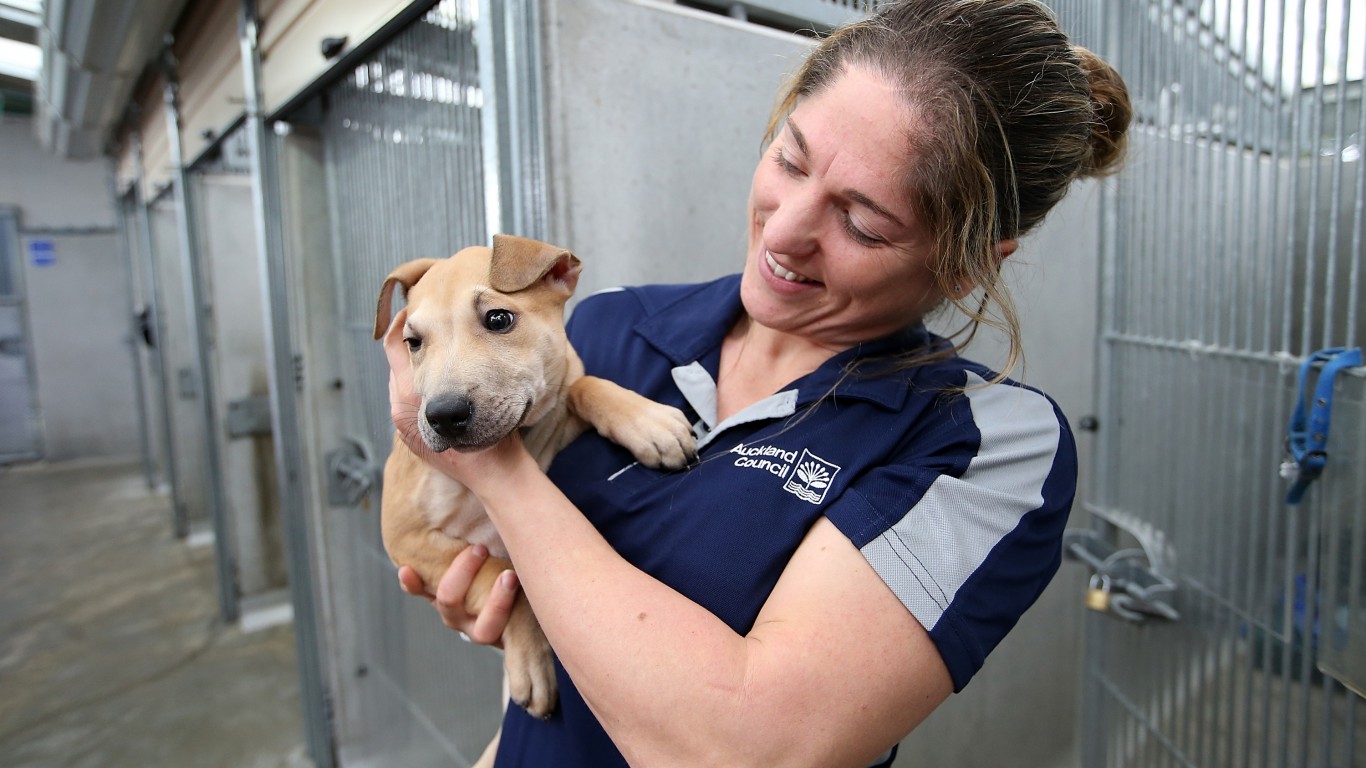
14. Save a life
Though 1.6 million shelter dogs are adopted each year, more than twice as many dogs enter shelters each year. Adoption has helped the number of euthanized animals to decline, however. By adopting instead of buying a dog, you can save an animal and open up more space at overcrowded shelters.
[in-text-ad-2]
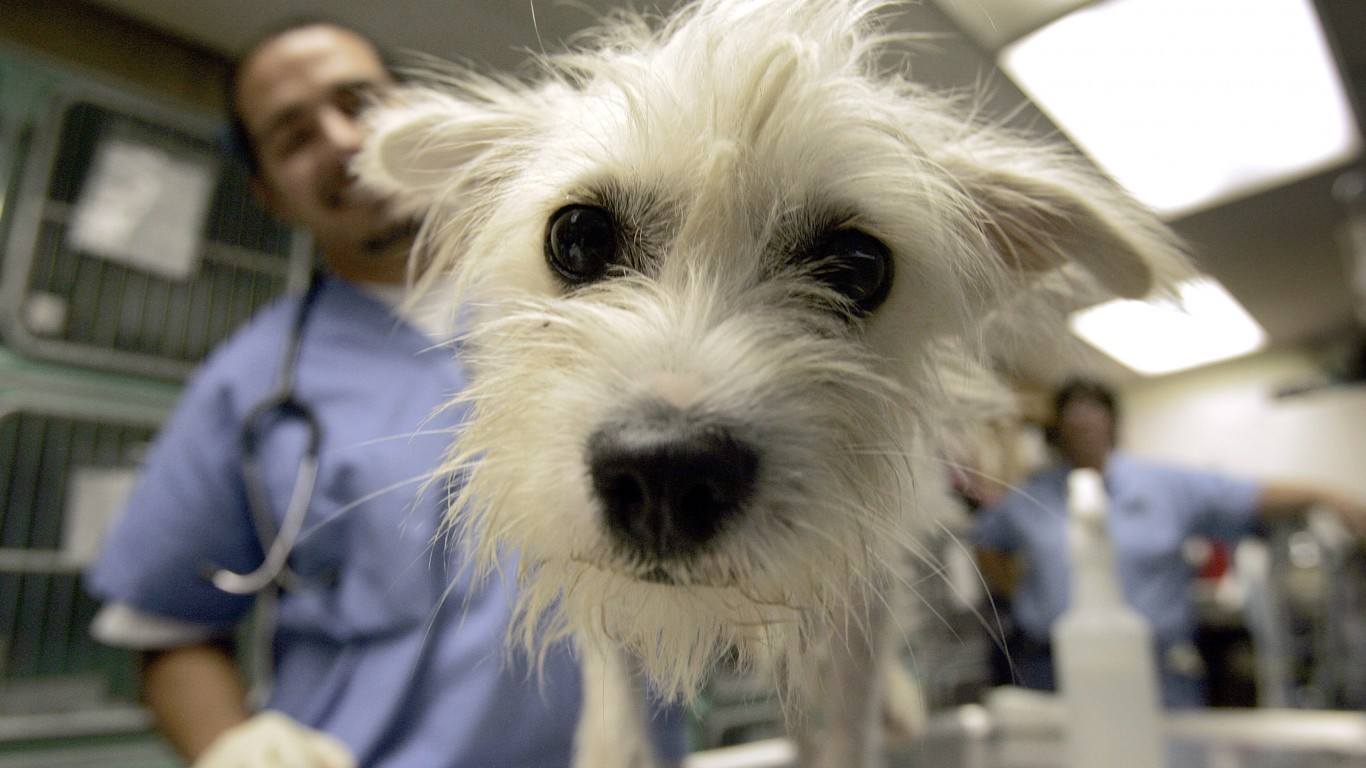
15. Get a healthier dog
Potential adoptees may have heard that shelter dogs are prone to more health issues, but this is usually not the case and shouldn’t stop you from adopting. Buying dogs from a pet store, especially if they are from puppy mills, can come with far more risks for health problems. Shelter dogs go through full physical exams, and many shelters have vets to treat medical issues. The shelters will also make sure that the pets are up to date on their shots and neutered or spayed before coming home with you — something that some breeders may not do.

16. Help more than one pet
Adopting a dog will save that animal’s life, but the act can also save more than one animal. With 6.5 million companion animals entering U.S. shelters every year, adopting helps make room for another animal. Your act will also help shelters to continue doing great work and may encourage someone else to save a shelter pet.
[in-text-ad]

17. Benefit your entire household
Dogs can make great companion animals. Even if you have a full household, dogs can still offer lots of benefits. Families with children should know that studies have shown that having a pet can lower a child’s chances of developing related allergies by up to 33%. Pets can also help connect a family — and an older shelter dog can be easier to introduce to a household than an untrained puppy.

18. Prolong your life
There is plenty of research out there to prove that owning a dog comes with health benefits, from lowering blood pressure to encouraging more exercise. An extensive new study, however, shows that dog ownership can reduce the chances of death by 24 percent. This decrease applies to “dying of any cause.”
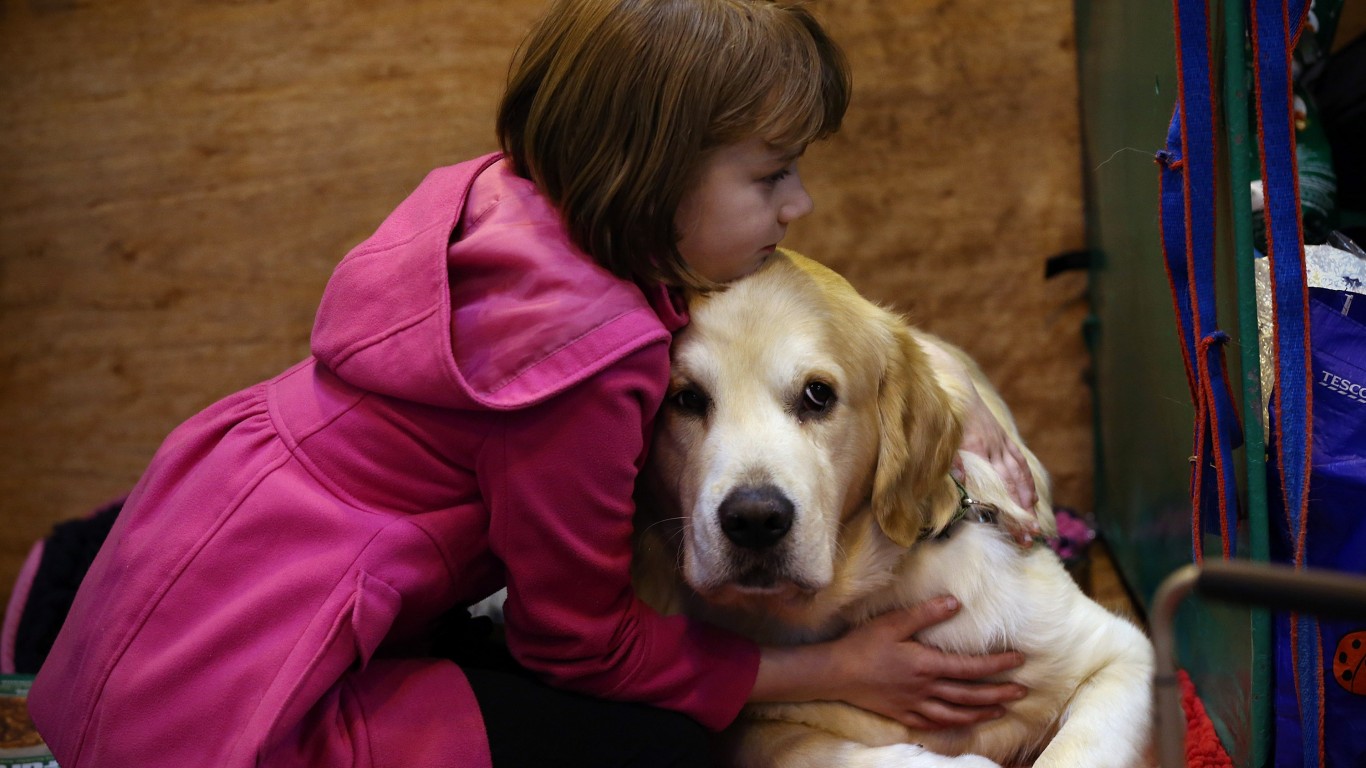
19. Rescue dogs deserve your love
There are many reasons that dogs may end up in shelters. They may have simply been abandoned by their owners, but others may have suffered from abuse or neglect. These dogs are often not pristine puppies, but can range in age and breeds. Whether it is an older dog, a mixed breed, or one with a sad past it deserves a second chance and a loving home.
[in-text-ad-2]

20. Witness a radical transformation
Some dogs end up in shelters from abuse, neglect, or pure abandonment, but once in a good home, these pets can go through an amazing emotional and physical transformation. With some grooming, medical care, and of course love, shelter dogs can make amazing recoveries. And there is plenty of evidence online and on social media showing these transformations and happy adoption stories.
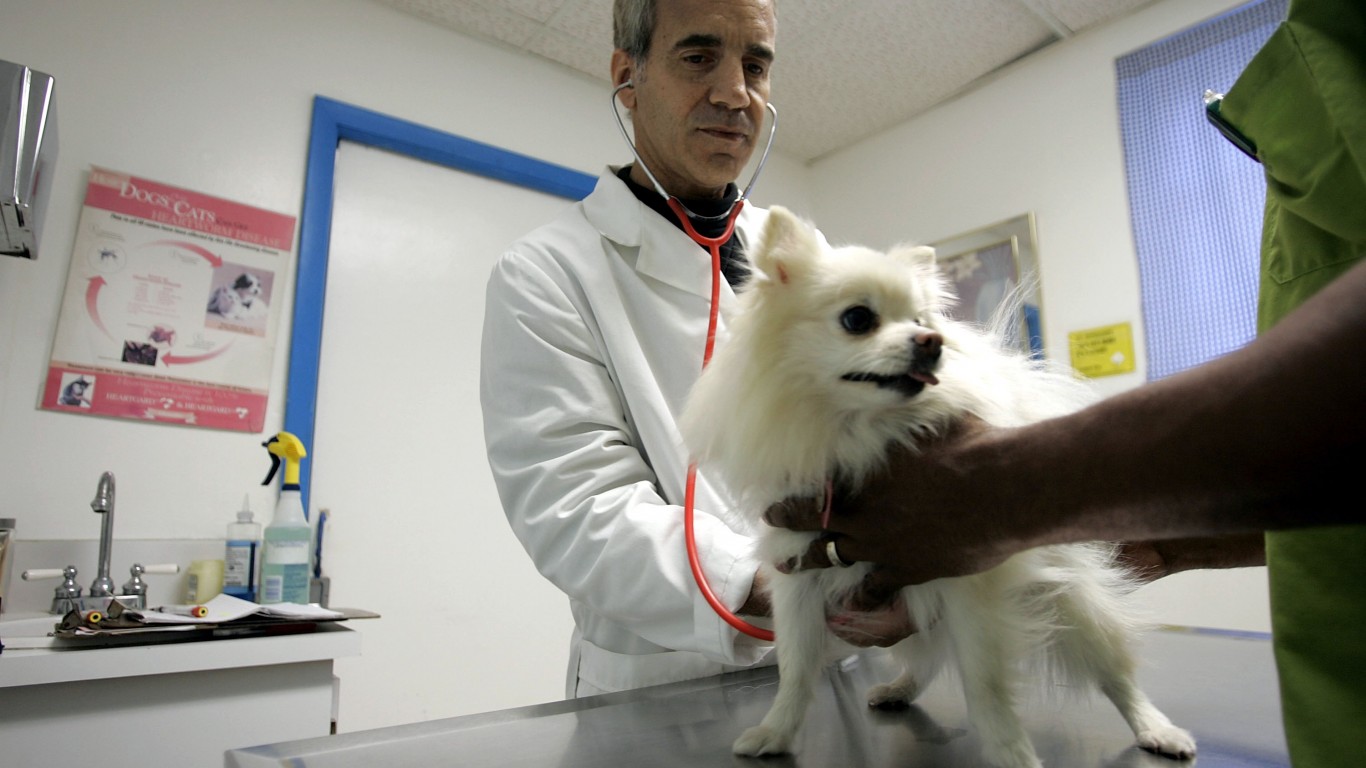
21. Save money on shots
Adopting a shelter dog may not be free, but the nominal fee generally includes spaying or neutering and necessary shots. Some of these shots are mandatory according to local laws. Others will help your dog live a longer, healthier life.
[in-text-ad]
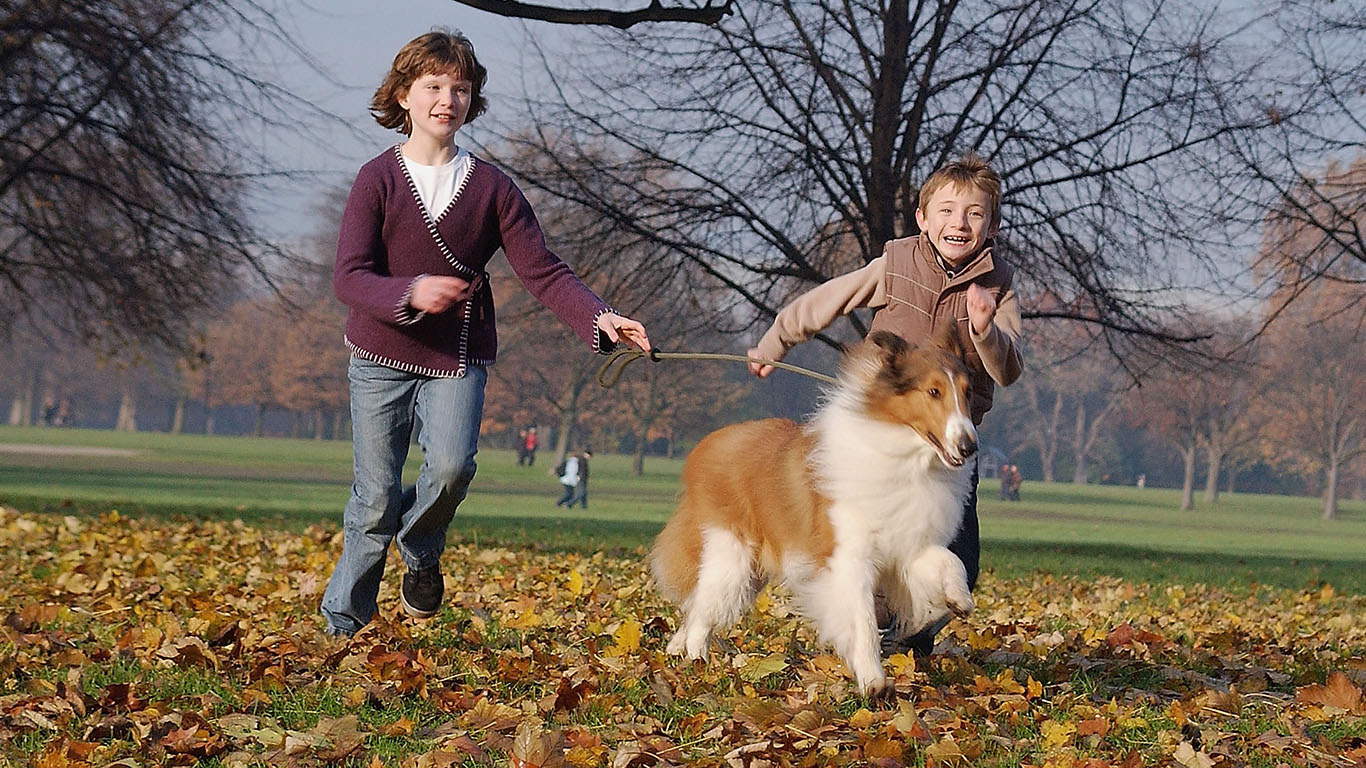
22. Skip the puppy stage
A puppy’s newness may be cute, but it also means training and patience. Puppies can take around four to six months to be fully house trained, with some taking up to a year. In addition to having accidents in the house, they can come with destructive behavior such as chewing, jumping on people and climbing on furniture. With a rescue dog, you can skip some or all of this training and have the option of adopting an older pet.
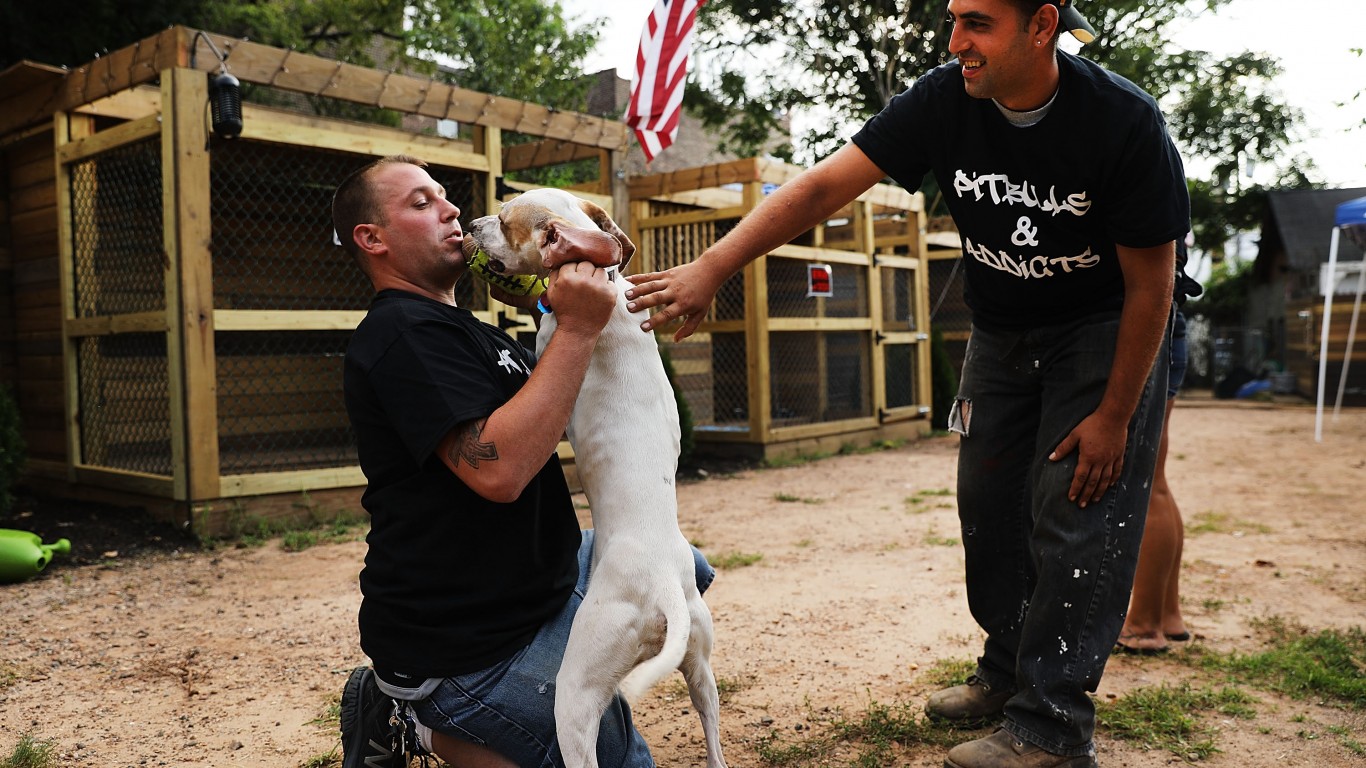
23. Stay connected to your local community
Research has shown that dogs can help with creating friendships, social support, and meeting neighbors and others in the community. They can also help spark conversations with strangers and create bonds among others with rescue dogs. Not only can a dog improve your chances of meeting new people, but in the winter and other bad weather, your pet can help you get out more when you have the urge to hibernate.

24. Uncover a movie star!
There is no question that Hollywood has had an effect on adopting rescues. Celebrities have encouraged others to take in shelter dogs after their own adoption efforts, and dogs that have appeared in movies have had an effect on the breeds that others adopt. There have also been several cases of former shelter dogs becoming stars themselves. And the film “Rescue Dogs the Movie,” starred actual rescues, while encouraging adoptions through linked events.
[in-text-ad-2]

25. Support a good cause
Adopting a dog not only saves a life, it can help your local animal shelter. Your adoption could make room for another shelter animals, your fee could help cover costs, and you could spread the word about a good cause. If you can’t adopt a pet now, but would like to help a local shelter, there is always volunteering or donating.
Get Ready To Retire (Sponsored)
Start by taking a quick retirement quiz from SmartAsset that will match you with up to 3 financial advisors that serve your area and beyond in 5 minutes, or less.
Each advisor has been vetted by SmartAsset and is held to a fiduciary standard to act in your best interests.
Here’s how it works:
1. Answer SmartAsset advisor match quiz
2. Review your pre-screened matches at your leisure. Check out the advisors’ profiles.
3. Speak with advisors at no cost to you. Have an introductory call on the phone or introduction in person and choose whom to work with in the future
Thank you for reading! Have some feedback for us?
Contact the 24/7 Wall St. editorial team.
 24/7 Wall St.
24/7 Wall St.


